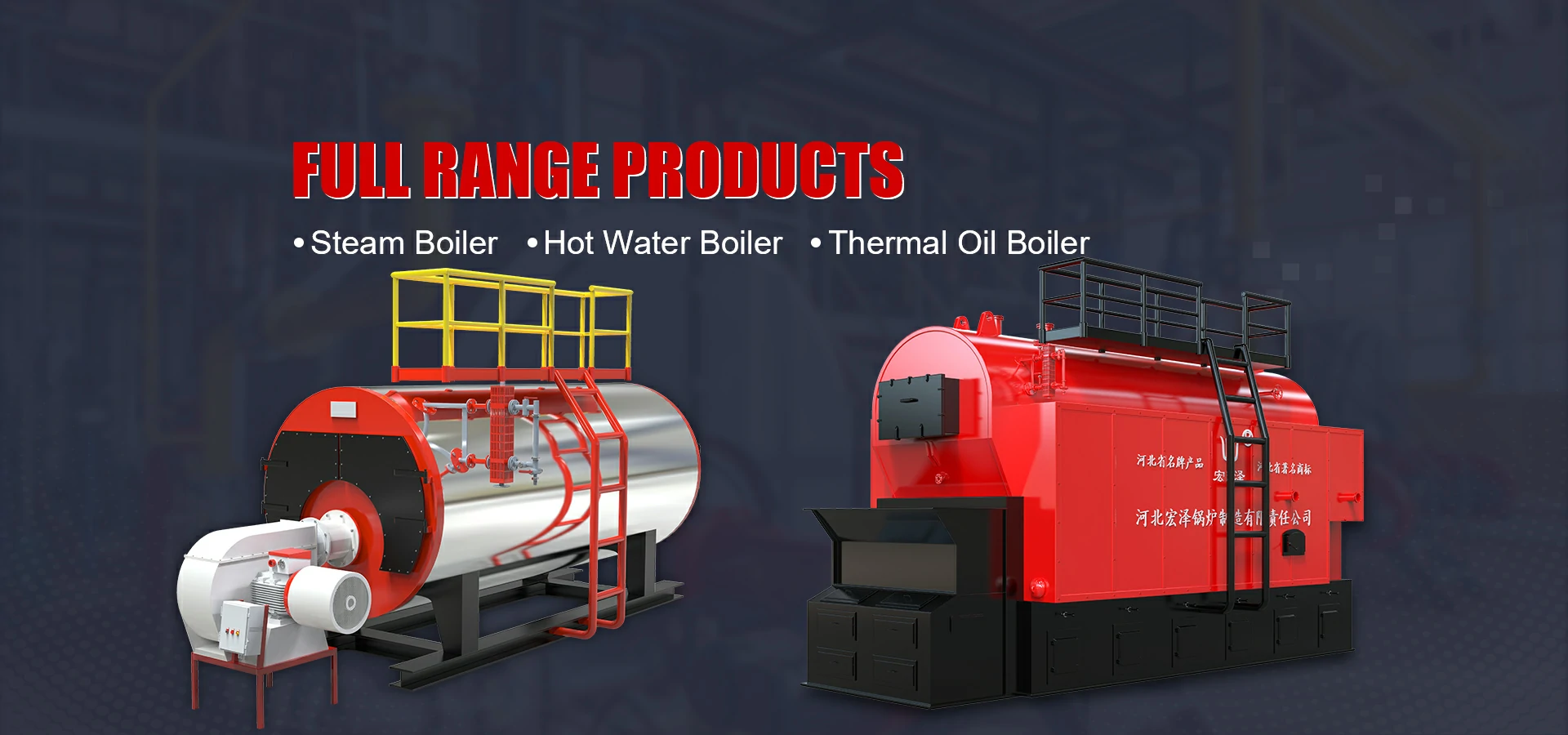
Авг . 15, 2024 16:19 Back to list
Exploring the Advantages and Applications of Thermal Oil Boilers in Industrial Processes and Energy Efficiency
Understanding Thermal Oil Boilers Efficiency and Applications
Thermal oil boilers, also known as thermal fluid heaters, are specialized heating devices that utilize a heat transfer fluid (HTF) to provide efficient heat to various industrial processes. Unlike traditional steam boilers, which use water as the heat transfer medium, thermal oil boilers employ oil or synthetic fluids, allowing for higher operational temperatures without the corresponding pressure issues associated with steam systems. This distinctive feature makes them increasingly popular in various industrial applications.
One of the primary advantages of thermal oil boilers is their ability to operate at high temperatures with relatively low pressure. Typically, they can achieve temperatures ranging from 150°C to 400°C, which is essential for processes requiring uniform heat distribution. This capability is particularly beneficial in industries such as chemical processing, food production, textiles, and pharmaceuticals, where precise temperature control is crucial for product quality.
The design of thermal oil boilers generally includes a heating section, a return section, and a pump to circulate the heated oil
. The operation begins with the heating of the thermal fluid in a furnace or heater, where the combustion of fuel, commonly natural gas, diesel, or biomass, generates heat. The heated oil is then pumped through the system to heat exchangers, where it transfers its thermal energy to the product or process requiring heat. This indirect method of heating increases safety, as the system is designed to minimize risks associated with high-pressure steam.thermal oil boiler

Energy efficiency is another significant factor driving the adoption of thermal oil boilers. The efficient heat transfer characteristics of the thermal fluid allow for rapid heating and minimal temperature loss throughout the system. Moreover, these boilers are typically designed with advanced combustion systems, ensuring low emissions and reduced environmental impact. This alignment with sustainability initiatives is increasingly important for industries striving to meet corporate social responsibility targets.
Maintenance of thermal oil boilers is generally straightforward, which is another appeal for facility managers. Regular inspections and the monitoring of fluid conditions are crucial to ensure the system's longevity and efficiency. The thermal oil itself can last for many years if properly maintained, meaning that the overall operational costs can be lower compared to traditional steam systems. Additionally, advancements in monitoring technologies have made it easier to maintain optimal performance levels.
Despite their numerous advantages, there are considerations to keep in mind when selecting a thermal oil boiler. The choice of heat transfer fluid is critical; it must withstand high temperatures and remain stable for long durations. Furthermore, the initial investment for a thermal oil boiler system can be higher than that of conventional steam boilers. However, the long-term savings in fuel and maintenance costs often justify this initial expenditure.
In conclusion, thermal oil boilers present an efficient and reliable solution for industries requiring high-temperature heat transfer. Their ability to operate safely at higher temperatures, combined with energy efficiency and ease of maintenance, makes them an attractive choice for a variety of applications. As industries continue to evolve towards more sustainable practices, the utilization of thermal oil boilers is likely to expand, solidifying their role in modern industrial processes. By choosing the right thermal oil system, companies can enhance productivity while minimizing their environmental footprint.
-
Best Steam Boiler Design PDF Free Design Calculation & Diagram Downloads
NewsJun.10,2025
-
Hot Boiler Water Heater Efficient Heating Solutions for Home & Commercial Use
NewsJun.10,2025
-
Steam Boiler Safety Devices High-Quality Protection Valves
NewsJun.10,2025
-
Ultimate Steam Boiler Checklist for Safety & Efficiency
NewsJun.10,2025
-
Optimal Hot Water Boiler Temperature Setting Guide
NewsJun.10,2025
-
Effective Hot Water Boiler Chemical Treatment Protect & Maintain
NewsJun.09,2025
Related PRODUCTS






















